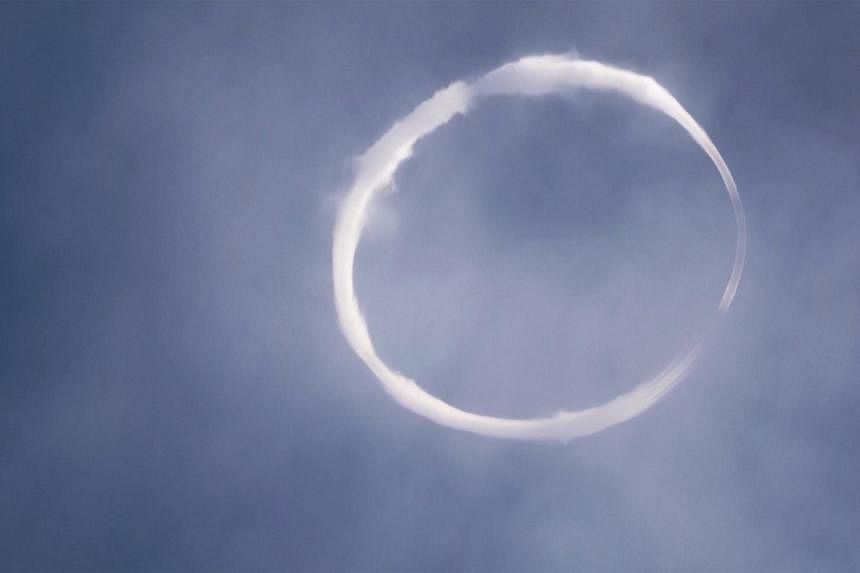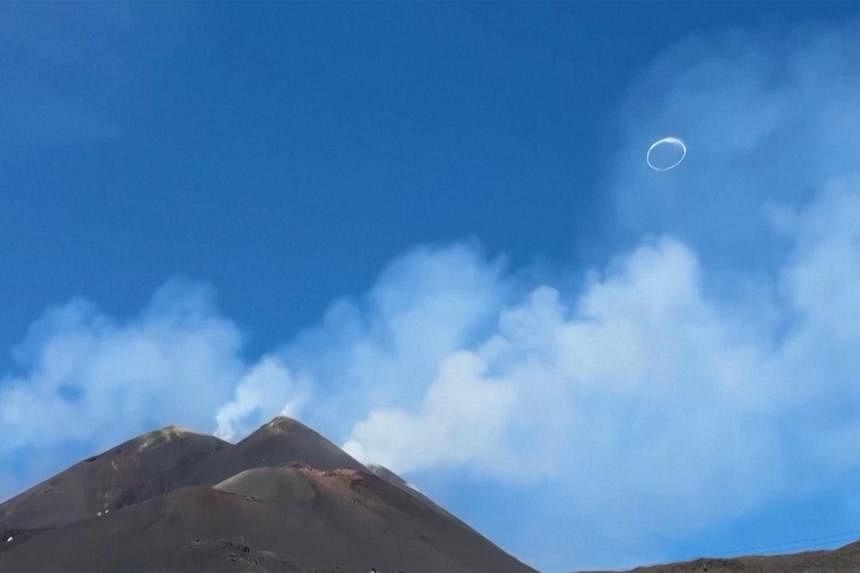A volcano in Italy put on a show for visitors by emitting “rare” smoke rings into the sky earlier this week.
Tourists filmed the phenomenon at Mount Etna in Sicily on April 6 – four days after the rings were first spotted – with footage showing plumes of smoke emerging from the summit, with some later forming into rings.
The rings, however, are not technically made of smoke. They are instead a combination of condensed gases – mainly water vapour – that have escaped the magma and rush upwards from the volcano’s vent, said Dr Boris Behncke, a volcanologist from the National Institute of Geophysics and Volcanology in Catania.
Magma is a mixture of molten and semi-molten rock found beneath the surface of the Earth.
As the hot volcanic gases escape from the vent in short pulses, such rings are formed.
The occurrence of the multiple vortex rings being blown from Mount Etna is extremely rare, despite being documented before, as it can only form in a circular volcanic vent and requires a calm atmosphere. Strong winds could also play a huge role in preventing the rings from forming.
Dr Behncke told Italian media that Etna produces more of these smoke rings than any other volcano on the planet.
There was no danger to humans or structures from this latest volcanic activity, he added.
Located on the eastern coast of Sicily, Mount Etna is said to be the highest Mediterranean island mountain and the most active stratovolcano in the world by the Unesco World Heritage Centre.
Stratovolvanoes have relatively steep sides and are more cone-shaped than shield volcanoes. As they are formed from viscous and sticky lava that does not flow easily, the lava instead builds up around the vent, forming a volcano with steep sides, according to the British Geological Survey.
The volcano erupts frequently, and its explosions have been documented for more than 3,500 years, said weather forecast site AccuWeather.



